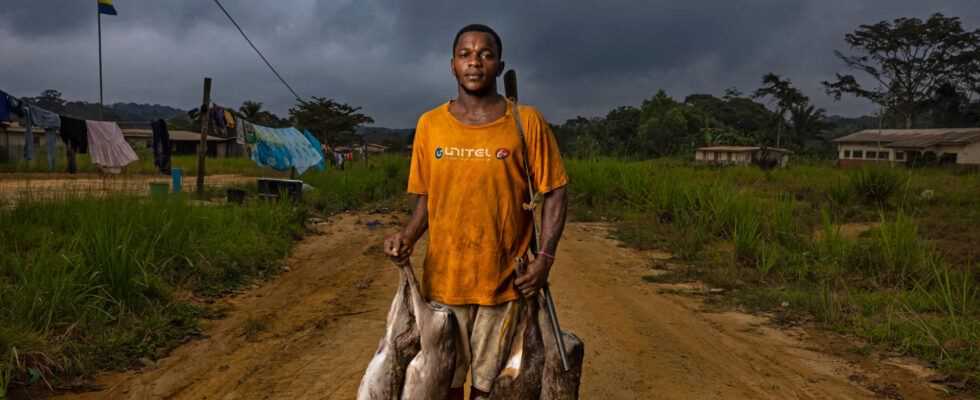ReportingTwo hours by canoe from Lastourville, scientists convinced villagers to help them assess the impact of hunting on wildlife. This work also makes it possible to introduce health monitoring to anticipate future zoonoses in these areas identified as at risk.
Cyril, a modest bushmeat hunter, has become a subject of study. He who only has a 12-gauge single-shot rifle and a wooden box in a village lost in the middle of the tropical forest is amazed. “One day, some men arrived, we initially thought that they were coming to make a national park”, recounts the long, dry man, remembering the feeling of dread which, in one go, had crossed the village.
In Gabon, as in the rest of Central Africa, the creation of protected areas is accompanied by a long history of spoliations and evictions that no one has forgotten. Here, it is already necessary to coexist with the large forest concessions which surround the village. But the researchers had not traveled so many kilometers to dislodge them.
Doumé, 150 inhabitants living along the shores of the tumultuous Ogooué, two hours by pirogue from Lastourville, is one of the sites chosen by scientists from the Center for International Cooperation in Agricultural Research for Development (CIRAD) to assess the impact of hunting on wild fauna and to propose a framework which reconciles the protection of species and the recognition of rights for hunters. Today, the latter are most often forced to act underground. “They bother us all the time [les agents du ministère des eaux et forêts]. We have no other means to live and we need a lot of money to buy oil, soap or pay for medicines when one of our children is sick ”, argues, fatalist, this father of nine children.
The doubts raised, the hunter and the twenty or so men of the village who, like him, track down duikers, bush pigs, porcupines and other species less recognizable because strictly protected such as pangolins or mandrills at night, have agreed to comply. to the discipline of researchers. For two years, next to the machete, rifle and headlamp, they have carried a GPS and a small notebook in their package in which they record – anonymously – the location and nature of their catches. The law, inherited in part from colonial times, prohibits the capture of game six months out of twelve. In November 2020, an exception was nevertheless granted for certain gazelles, porcupines and rodents, the most consumed species and whose populations are considered to be abundant.
“Our objective is to set up committees of hunters trained in the sustainable management of the resource and to help create legal, sustainable and healthy bushmeat sectors”, summarizes Hadrien Vanthomme, the coordinator of the project which, in total, covers the activity of a hundred hunters in three villages.
You have 77.06% of this article left to read. The rest is for subscribers only.
